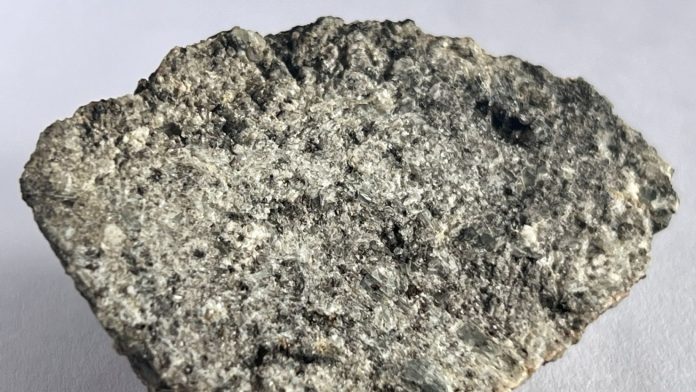On June 26, a mysterious fireball lit up the daytime sky, attracting hundreds of observers in Georgia and South Carolina.
NASA noted that the meteor exploded in the sky over Georgia, creating a loud noise that was heard by people in the surrounding area.
According to planetary geologist Scott Harris of the University of Georgia, who studied fragments of the meteorite, it is believed to be older than earth itself. In a press release, he said he had examined 23 grams of meteorite fragments.
The sample was taken from a cherry tomato-sized fragment that pierced the roof of a home in a suburb of Atlanta and left a dent in the floor. “It travelled a long way before entering the atmosphere and falling to the ground in McDonough,” he said.
When a space rock enters the atmosphere and burns up, it is called a meteor. According to NASA, space rocks not only withstand long journeys, but also have exceptional brightness, which is why they are called “fireballs.”
After examining the fragments under a microscope, Harris concluded that the meteorite was formed 4.56 billion years ago, which is about 20 million years older than earth. “It belongs to a group of asteroids in the main belt between Mars and Jupiter, which probably formed as a result of a collision or the disintegration of a giant asteroid that occurred about 470 million years ago,” he explained.
The American Meteor Society reported that it received more than 160 reports of the fireball from eyewitnesses at 12:25 p.m. on June 26. The meteor was first spotted at an altitude of about 48 miles above the city of Oxford, moving southwest at a speed of 30,000 miles per hour.
The fireball then exploded about 42 kilometres above West Forest, releasing energy equivalent to about 20 tonnes of TNT. Bill Cook, head of NASA’s Meteor Environment Office, said the fireball was about 90 cm in diameter and weighed more than a tonne.
Scientists from the University of Georgia and Harris’ colleagues at Arizona State University plan to present their findings to the Meteor Society’s Naming Committee. They propose naming the space object the McDonough meteorite, after the town where it fell to earth.
According to the university, this is the 27th meteorite found in Georgia and the sixth fall recorded by witnesses. The homeowner said that he still finds tiny particles of cosmic dust left over from the fall in his living room.
Meteorites do not often fall in broad daylight in front of a crowd. But modern technology and public observation have led to more and more meteorites being discovered. “We used to expect this to happen once every few decades, not several times in 20 years,” Harris said.
